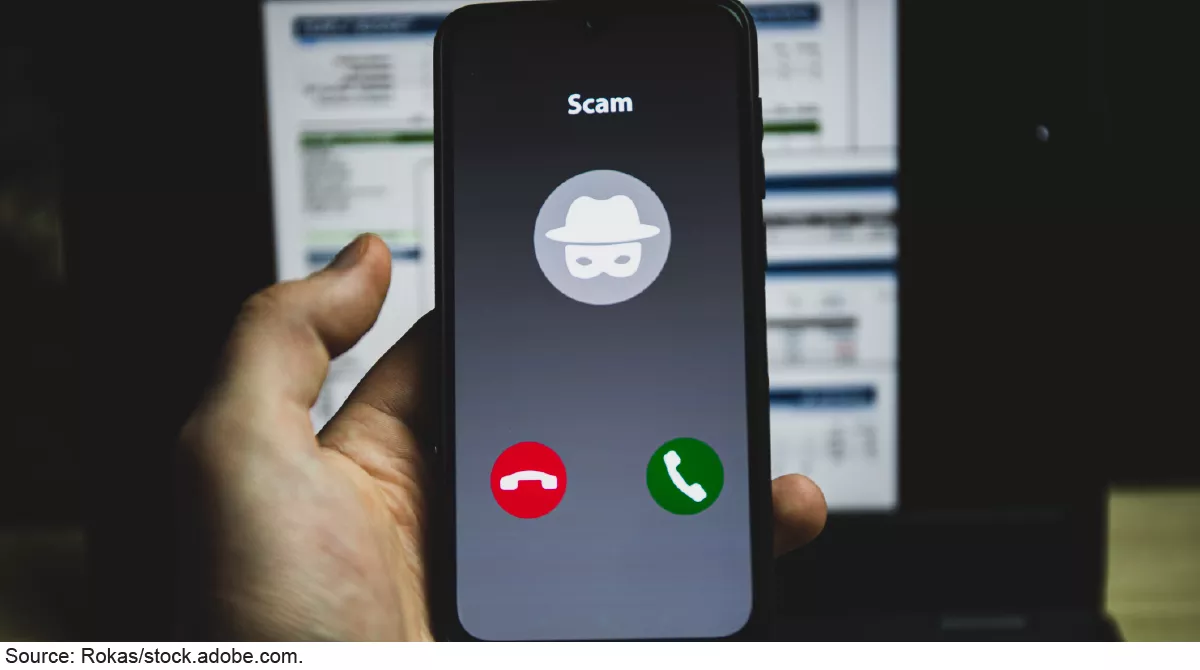
Most of us have come across that online deal that seems simply too good to pass up. Or we’ve received an urgent text or email from someone claiming to represent the government requesting a past-due payment.
Payment scams like these are on the rise. For example, financial losses from fake investment opportunities alone rose nearly 40% from 2022 to 2023—with more than $4.57 billion in associated losses. Victims of these scams may turn to their financial institution (a bank, credit union, or payment app—like Zelle or Venmo) for help recovering payments. But these institutions are generally not required to reimburse victims who have authorized payments as a result of a scam.
Today’s WatchBlog post explores our new Q&A report on the role of financial institutions in protecting against payment scams and some of the common payment scams that are leading to the largest losses.

If someone stole your money by making a payment that wasn’t authorized, your bank, credit union, or a payment app may be required to reimburse you for that scam. For example, if a scammer steals your bank account information and goes on a spending spree. But payment scams often occur through payments that were authorized by victims themselves—meaning the victims were deceived into making the payments to the scammer. In these cases, financial institutions are not generally required to reimburse victims.
For our new report, financial institutions told us they are working to help their customers avoid becoming victims of such payment scams. Financial institutions we spoke with said they provide consumer education and warnings about potential payment scams. They post information on their websites, apps, and through mailers to alert consumers.
To prevent losses from payment scams, institutions also are slowing the payment process to help verify where payments are going; and they are investing in new technologies to monitor and analyze transactions.
But even with these efforts—consumers should still beware of deals or investments that seem too good to be true.
If it seems too good to be true, it probably is. But even knowing that, many of us still fall victim to payment scams which can take many forms.
Hey, good lookin’. You might not be falling in love, but instead falling victim to a romance or relationship scam. In a romance or relationship scam, scammers will use dating apps or other social media sites to connect with victims and gain their trust—only to ask for money once the relationship is established. A scammer might say they have a medical or family emergency and promise to pay their victim back. Once money is transferred or the target of the scam refuses to pay, communication often stops. Millions have been lost because of these payment scams. For example, in 2023, the Department of Justice brought criminal cases against seven individuals, who were ordered to pay more than $11.8 million in restitution to victims of a coordinated romance scam.
You owe the government money. Under this type of scam, victims may receive a phone call, email, or text from someone claiming to represent a well-known law enforcement or government agency. To bolster their claim, the scammer may provide personal details about the victim—such as their social security number or birth date. Then the victim is threatened with arrest, prosecution, or imprisonment if they don’t pay what they “owe” immediately. In 2024, the Department of Justice prosecuted an individual who scammed more than 2,700 people out of $2.4 million between 2021 and 2023.
Check out our new Q&A report to learn about other common scams.
Pay attention to scam alerts or red flag notices from your financial institution or payment apps. Consumers often think falling victim to fraud will not happen to them, but payment scams are increasingly using artificial intelligence and other technology to get your money. Remember, if it seems too good to be true, it likely is.
Speak up! Notify your financial institution and law enforcement if you suspect you are the victim of a payment scam. The Department of Justice has successfully prosecuted payment scam cases. Information from victims may help law enforcement track down these scammers.
Learn more about evolving payment scams and financial institution’s efforts to prevent them in our new report.